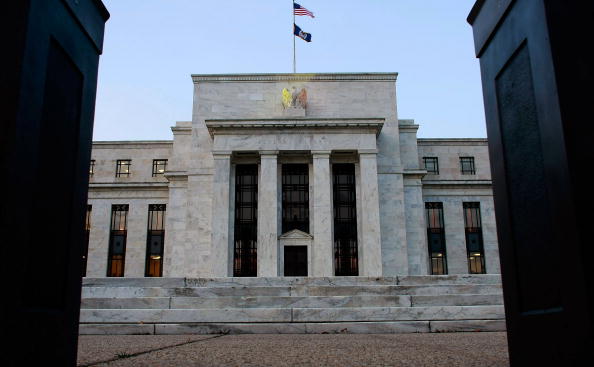Sea of red: Looming US Fed rate hike spree sends chill through global markets

A sea of red engulfed global markets today as a looming rate hike spree from the US Federal Reserve sent investors fleeing stock markets.
Traders dumped shares on fears the Fed will send the strongest signal yet on its intention to rapidly rein in ultra-stimulative monetary policy at its meeting of rate setters on Wednesday.
London’s premier FTSE 100 index closed 2.63 per cent lower, while the domestically-focused FTSE 250 plummeted 3.64 per cent on one of the worst days in the City since the start of the pandemic.
The selloff on the Square Mile bled across the Atlantic, with the tech-heavy Nasdaq index, which is heavily exposed to higher interest rates, bottoming out as much as three per cent.
Wall Street’s S&P 500 entered correction territory today.
“The market is still scrambling to understand why equities are selling-off so sharply… perhaps the simplest answer is the best: blame the Fed,” George Saravelos, head of FX research at Deutsche Bank, said.
Fed Chair, Jerome Powell, is widely anticipated to tell markets to get ready for a series rate hikes this year, beginning in March, at its meeting this week, in a bid to tamp down on soaring inflation.
On these shores, some experts are betting on the Bank of England lifting rates at least four times this year, hoisting them to 1.25 per cent by the end of 2022.
In preparation of tighter policy, investors are rapidly pivoting their positions to reduce risk exposure by selling stocks, triggering sharp declines on the world’s top exchanges.
The seeming growing likelihood of a military conflict between Russia and Ukraine also sent European shares tumbling yesterday.
The pan-European Stoxx 600 slid 3.81 per cent, while Germany’s Dax 30 and France’s Cac 40 both lost 3.8 per cent and 3.97 per cent respectively.
Worryingly, top City analysts warned the global selloff is a symptom of the world leaning into a period of anaemic growth after shrugging off the pandemic.
“The current deceleration in growth [is] more about the natural ebbing of the cycle,” Michael Wilson, a strategist at Morgan Stanley, warned in a note.
The VIX index, which measures financial market volatility, hit a 52-week high, climbing 22 per cent to more than 35.